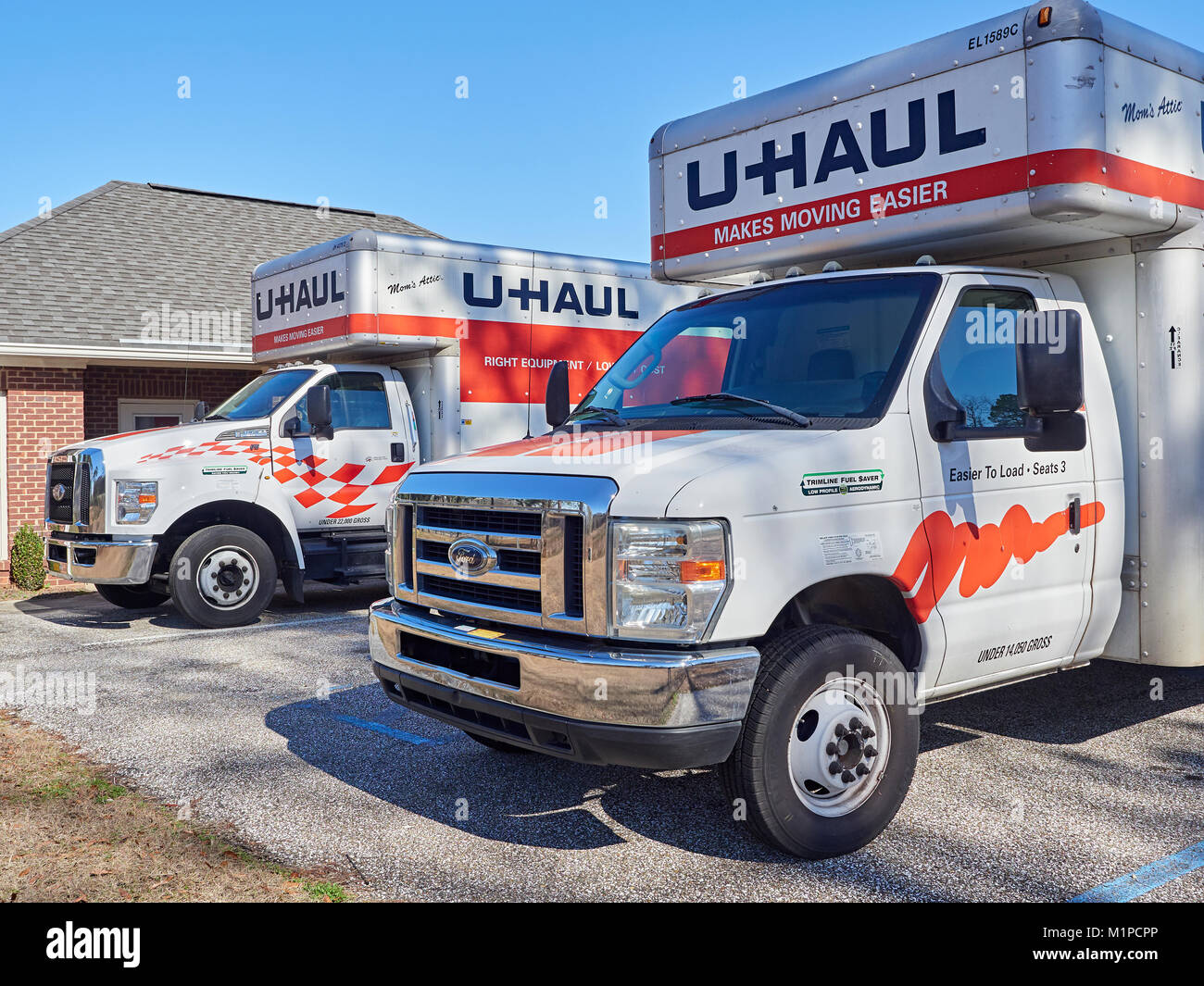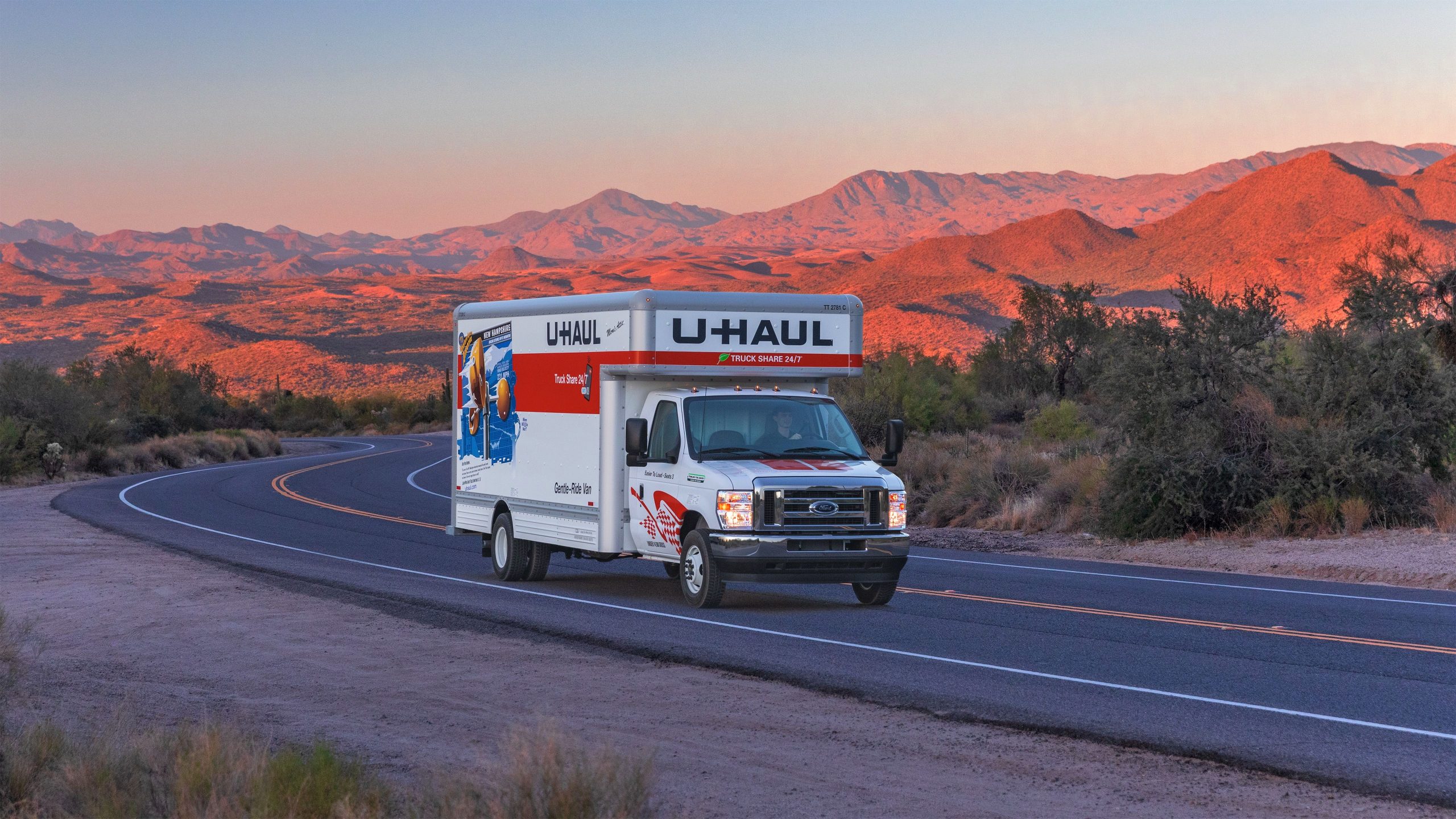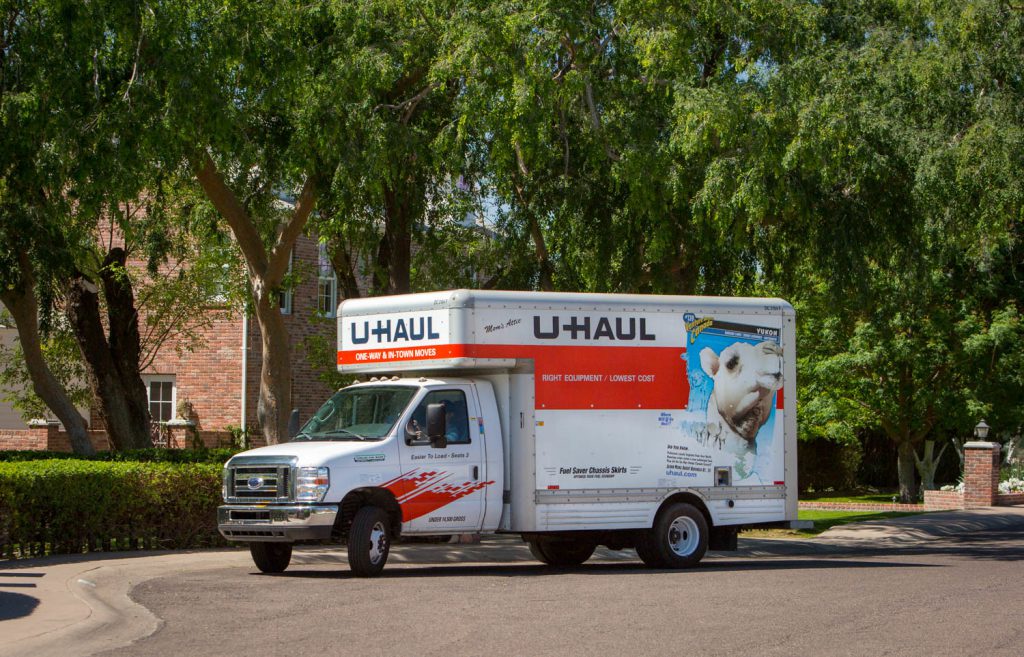Uhaul Trailer Renting: Your Comprehensive Guide to Hauling Solutions types.truckstrend.com
Moving, transporting goods, or embarking on a DIY project often presents a common challenge: how to efficiently and affordably move large or numerous items. This is where U-Haul trailer renting steps in as an indispensable solution. U-Haul, a household name in self-moving and storage, offers a diverse fleet of trailers designed to cater to a wide array of hauling needs, from relocating an entire household to transporting a vehicle or simply clearing out garage clutter. This guide aims to demystify the process of renting a U-Haul trailer, providing you with all the essential information, tips, and considerations to ensure a smooth and successful hauling experience.
Why Choose U-Haul Trailers?
Uhaul Trailer Renting: Your Comprehensive Guide to Hauling Solutions
U-Haul’s trailer rental service stands out for several compelling reasons, making it a preferred choice for individuals and families tackling various hauling tasks.
Firstly, cost-effectiveness is a major draw. Renting a trailer is often significantly cheaper than hiring professional movers or even renting a full-size moving truck, especially for smaller moves or specific hauling jobs. You pay for the trailer, and your own vehicle handles the towing, saving on fuel costs compared to larger trucks.
Secondly, flexibility and accessibility are key. With thousands of U-Haul locations across North America, finding a convenient pick-up and drop-off point is rarely an issue. Their extensive network ensures that you can often rent a trailer for in-town use or for one-way trips across states, adapting to your specific moving needs.
Thirdly, the variety of sizes and types ensures there’s a U-Haul trailer for almost every scenario. Whether you need an enclosed space to protect your belongings from the elements or an open utility trailer for bulky construction materials, U-Haul has options. Their trailers are designed with user-friendliness in mind, featuring low decks for easy loading and often equipped with sturdy ramps.
Ultimately, choosing a U-Haul trailer empowers the do-it-yourself mover, offering a practical, reliable, and economical alternative for transporting everything from furniture and appliances to vehicles and landscaping supplies.
Types of U-Haul Trailers
U-Haul categorizes its trailers into distinct types, each designed for specific hauling purposes. Understanding these categories is crucial for selecting the right trailer for your needs.
1. Cargo Trailers (Enclosed)

These trailers are fully enclosed, providing protection for your belongings from weather, dust, and debris, as well as offering enhanced security. They are ideal for moving household goods, furniture, boxes, and sensitive equipment.
- 4×8 Cargo Trailer: The smallest enclosed option, perfect for studio apartment moves, small furniture, or transporting a few boxes.
- 5×8 Cargo Trailer: A popular choice for one-bedroom apartments, appliances, or clearing out a basement.
- 5×10 Cargo Trailer: Offers more space, suitable for larger apartment moves or transporting multiple pieces of furniture.
- 6×12 Cargo Trailer: The largest enclosed trailer, often used for two-bedroom homes or substantial hauling jobs, with many models featuring a loading ramp for easier access.

2. Utility Trailers (Open)
Utility trailers are open-top and typically have low sides, making them ideal for hauling items that are bulky, dirty, or weatherproof. They are commonly used for landscaping projects, construction materials, ATVs, and other equipment.
- 4×7 Utility Trailer: Small and agile, great for yard work, small appliances, or light bulk items.
- 5×8 Utility Trailer: A versatile option for landscaping materials, motorcycles, or general hauling.
- 5×9 Utility Trailer with Ramp: The added ramp makes loading wheeled items like ATVs, lawnmowers, or even motorcycles much simpler.
- 6×12 Utility Trailer with Ramp: The largest utility trailer, designed for heavy-duty hauling, large equipment, or multiple ATVs.

3. Auto Transport Trailers
These are full-size trailers designed to transport an entire vehicle. They feature a full deck and ramps for loading, along with secure tie-downs to ensure your vehicle stays put during transit.
- Ideal for: Non-drivable vehicles, classic cars, long-distance car transport, or when you need to move a second vehicle during a household relocation.
4. Tow Dollies
A tow dolly is a two-wheel trailer that lifts the front wheels of a vehicle off the ground while the rear wheels remain on the road. They are lighter and often more affordable than full auto transports.
- Ideal for: Front-wheel-drive vehicles, shorter distance moves, or when your towing vehicle has a lower towing capacity.
How to Rent a U-Haul Trailer: A Step-by-Step Guide
Renting a U-Haul trailer is a straightforward process, but careful planning ensures a hassle-free experience.
Step 1: Determine Your Needs
Before anything else, assess what you need to haul.
- What are the dimensions and weight of your items? This will dictate the required trailer size.
- What is your towing vehicle’s capacity? Crucially, your vehicle must be capable of safely towing the loaded trailer. Check your vehicle’s owner’s manual for its gross combined weight rating (GCWR) and maximum towing capacity.
- Do you need weather protection (enclosed) or an open bed (utility)?
- Are you moving locally (in-town) or long-distance (one-way)?
Step 2: Reserve Your Trailer
U-Haul offers several convenient ways to make a reservation:
- Online: The U-Haul website (uhaul.com) or mobile app is the most common method. You can browse available trailers, get quotes, and specify pick-up and drop-off locations and dates.
- By Phone: Call their customer service line.
- In-Person: Visit a local U-Haul center.
Reservations are highly recommended, especially during peak moving seasons (summer, end of month), to ensure availability.
Step 3: Prepare Your Tow Vehicle
Before pick-up, ensure your vehicle is ready:
- Hitch: You need a properly installed trailer hitch with the correct ball size (typically 1-7/8" or 2" for U-Haul trailers).
- Wiring: Your vehicle needs a working wiring harness (either 4-flat or 7-way connector) to power the trailer’s brake lights, turn signals, and running lights. U-Haul offers wiring installation services if needed.
- Tires: Ensure your vehicle’s tires are properly inflated and in good condition.
Step 4: Pick Up Your Trailer
On your scheduled pick-up day:
- Required Documents: Bring your valid driver’s license and a credit card for payment and security deposit.
- Inspection: Before leaving, inspect the trailer thoroughly for any existing damage, and ensure all lights are working. Report any issues to the U-Haul representative.
- Hook-up Assistance: U-Haul staff will assist you in hooking up the trailer to your vehicle, ensuring a secure connection. Pay attention to their safety instructions regarding coupling, safety chains, and electrical hook-up.
- Weight Distribution: Discuss proper weight distribution with the U-Haul representative. Loading the trailer correctly is paramount for safe towing.
Step 5: Load and Drive Safely
- Loading: Place heavier items towards the front of the trailer (over the axle) to maintain proper tongue weight and prevent sway. Secure all items to prevent shifting during transit.
- Driving:
- Reduced Speed: Drive slower than usual, especially on turns and in adverse weather.
- Increased Braking Distance: Your stopping distance will be significantly longer.
- Wider Turns: Account for the added length of the trailer when making turns.
- Check Mirrors: Frequently check your side mirrors for trailer movement.
Step 6: Return Your Trailer
Return the trailer to the agreed-upon location on time. Ensure it is empty and reasonably clean. Late returns can incur additional charges.
Important Considerations and Safety Tips
Towing a trailer requires careful attention to detail and adherence to safety guidelines.
- Towing Capacity is Paramount: Never exceed your vehicle’s stated towing capacity. This is the single most critical factor for safe towing. Overloading can damage your vehicle, lead to loss of control, and result in accidents.
- Hitch and Ball Size: Verify your hitch ball matches the coupler on the U-Haul trailer. Most U-Haul trailers use a 1-7/8" or 2" ball.
- Lighting and Wiring: Functional brake lights, turn signals, and running lights are not just for safety; they are legally required. Ensure your vehicle’s wiring harness is compatible and working.
- Tire Pressure: Check the tire pressure on both your tow vehicle and the trailer tires before starting your trip. Properly inflated tires are crucial for stability and fuel efficiency.
- Proper Weight Distribution: Load the trailer so that approximately 60% of the cargo weight is in the front half of the trailer, over the axle. This ensures adequate tongue weight (the downward force on the hitch ball), which is vital for preventing trailer sway.
- Braking Distance: Remember that towing a trailer significantly increases your braking distance. Maintain a larger following distance than usual.
- Speed Limits: Many states have lower speed limits for vehicles towing trailers. Be aware of and obey these regulations.
- Pre-Trip Inspection: Before every leg of your journey, perform a quick check:
- Ensure the hitch coupler is securely latched.
- Safety chains are crossed and attached.
- Electrical connection is firm, and all lights work.
- Tires are properly inflated.
- Cargo is secure.
- Insurance: Your personal auto insurance policy may offer some coverage for towing, but it’s essential to confirm with your provider. U-Haul also offers optional coverage plans like "Safemove" and "Safetow" which provide protection against damage to the trailer, your belongings, and liability, and are highly recommended for peace of mind.
Pricing and Rental Information
The cost of renting a U-Haul trailer can vary based on several factors:
- Trailer Type and Size: Larger and more specialized trailers (like auto transports) are generally more expensive.
- Rental Duration: Whether you need it for a few hours, a day, or multiple days.
- Distance (In-Town vs. One-Way):
- In-Town Rentals: Priced per day or a flat rate for local use. You pick up and return the trailer to the same location. These are typically the most affordable.
- One-Way Rentals: Priced based on the origin, destination, and mileage. You pick up the trailer at one location and return it to a different U-Haul location. This option is available for most enclosed cargo trailers and auto transports, but generally not for utility trailers.
- Location and Demand: Prices can fluctuate based on geographic location and the demand for trailers at a particular time (e.g., higher prices during peak moving season).
- Optional Coverage: Adding U-Haul’s optional Safemove/Safetow coverage will increase the total cost, but offers valuable protection.
Here’s an estimated price table for U-Haul trailer rentals. Please note that these are approximate figures and actual prices may vary significantly based on the factors mentioned above.
| Trailer Type | Size (Approx.) | In-Town (Per Day Est.) | One-Way (Per Mile/Fixed Est.) | Ideal Use |
|---|---|---|---|---|
| Cargo Trailer | 4×8 | $14.95 – $29.95 | Varies (e.g., $100-$300+) | Small moves, boxes, few furniture pieces |
| Cargo Trailer | 5×8 | $18.95 – $34.95 | Varies (e.g., $150-$400+) | Mid-size moves, appliances |
| Cargo Trailer | 5×10 | $24.95 – $39.95 | Varies (e.g., $200-$500+) | Larger apartment moves, multiple items |
| Cargo Trailer | 6×12 | $29.95 – $49.95 | Varies (e.g., $250-$700+) | Small house moves, large furniture |
| Utility Trailer | 4×7 | $14.95 – $24.95 | N/A (mostly in-town) | Small landscaping, ATVs, open items |
| Utility Trailer | 5×8 | $18.95 – $29.95 | N/A (mostly in-town) | Medium landscaping, bulky items |
| Utility Trailer | 5×9 (Ramp) | $24.95 – $34.95 | N/A (mostly in-town) | Larger open items, motorcycles |
| Utility Trailer | 6×12 (Ramp) | $29.95 – $39.95 | N/A (mostly in-town) | Heavy-duty open hauling, large equipment |
| Tow Dolly | N/A | $44.95 – $64.95 | Varies (e.g., $100-$300+) | FWD vehicle transport (shorter distances) |
| Auto Transport | N/A | $54.95 – $79.95 | Varies (e.g., $150-$700+) | All vehicle types, long-distance transport |
Note: Prices are estimates and subject to change based on location, availability, duration, and demand. One-way rentals are generally more expensive and priced based on distance and route. Always get a precise quote from U-Haul for your specific rental needs.
Frequently Asked Questions (FAQ)
Q: Do I need a special license to tow a U-Haul trailer?
A: In most U.S. states and Canadian provinces, a standard driver’s license is sufficient to tow a U-Haul trailer, provided your vehicle’s towing capacity is adequate. However, it’s always wise to check your local Department of Motor Vehicles (DMV) or equivalent for specific regulations in your area.
Q: Can I rent a trailer one-way?
A: Yes, U-Haul offers one-way rentals for most enclosed cargo trailers, auto transport trailers, and tow dollies. Utility trailers are generally restricted to in-town (round trip) rentals.
Q: What if my car doesn’t have a hitch or proper wiring?
A: U-Haul offers professional hitch installation services and wiring solutions at many of its locations. It’s best to call ahead or check their website for these services.
Q: Is insurance required when renting a U-Haul trailer?
A: While not legally required by U-Haul, it is highly recommended. Your personal auto insurance policy may or may not cover damages to a rental trailer or liability while towing. U-Haul offers optional "Safemove" and "Safetow" coverage plans which provide protection for the trailer, your cargo, and liability.
Q: How do I know what size trailer I need?
A: Estimate the volume of items you need to move. U-Haul’s website has sizing guides and tools to help you visualize what fits into each trailer. When in doubt, it’s often better to go slightly larger than too small.
Q: Can I pick up or drop off a trailer after hours?
A: Trailer pick-ups typically occur during business hours. For returns, some U-Haul locations offer after-hours drop-off, but you should confirm this with the specific location at the time of rental.
Conclusion
U-Haul trailer renting offers an incredibly flexible, affordable, and practical solution for a myriad of hauling needs. From facilitating a seamless DIY move to enabling significant home improvement projects, U-Haul’s diverse fleet of trailers empowers individuals to take control of their transportation challenges. By understanding the different types of trailers available, meticulously planning your rental, and prioritizing safety throughout the towing process, you can leverage U-Haul’s services to achieve your hauling goals efficiently and with confidence. Remember, a successful trailer rental experience hinges on thorough preparation, adherence to safety guidelines, and making informed choices, ultimately making your next big move or project a breeze.
